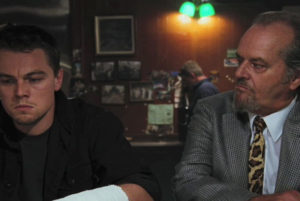 As it happens with all kinds of adaptations, changing the elements of a story is risky, but it can also lead to very interesting results.
As it happens with all kinds of adaptations, changing the elements of a story is risky, but it can also lead to very interesting results.
Adapting a movie into another language, market and setting is a practice more common in screenwriting than some suspect – and sadly, there are occasions in which the general audience never even learns that they are watching an adaptation from a foreign work.
 Even some of the most reputed filmmakers have occasionally transitioned from creators to adaptators in this sense, as did Martin Scorsese when he adapted the 2002 Hong Kong film Internal Affairs into a brilliant script written by William Monahan (The Departed, 2006). Others, like Quentin Tarantino, have defined their careers by paying constant tribute to cinematic universes whose uniqueness and exoticness captivated them.
Even some of the most reputed filmmakers have occasionally transitioned from creators to adaptators in this sense, as did Martin Scorsese when he adapted the 2002 Hong Kong film Internal Affairs into a brilliant script written by William Monahan (The Departed, 2006). Others, like Quentin Tarantino, have defined their careers by paying constant tribute to cinematic universes whose uniqueness and exoticness captivated them.
 True enough, these adaptations are often turned into mere attempts of exploiting a formula – again, this is what seems to happen with other kinds of adaptations as well.
True enough, these adaptations are often turned into mere attempts of exploiting a formula – again, this is what seems to happen with other kinds of adaptations as well.
But we also have plenty of examples of filmmakers adapting a fellow director’s creation with respect and creativity enough as to produce something equally unique and memorable:
(1959) Some Like It Hot
(from the French film Fanfare d’amour)
(1960) The Magnificent Seven
(from Kurosawa’s Seven Samurai)
(1965) The Sound of Music
(from the German film Die Trapp-Familie)
(1992) Scent of a Woman
(from the Italian film Profumo di donna)
(1993) The Vanishing
(from the Dutch film Spoorloos)
(1994) True Lies
(from the French film La Totale!)
(1995) Twelve Monkeys
(from the French short film La Jetée)
(2002) Insomnia
(from the Norwegian film of the same title)
(2006) The Departed
(from the Hong Kong film Internal Affairs)
(2007) Funny Games
(from the German film of the same title)
(2010) Let Me In
(from the Swedish film Låt den rätte komma in)
(2012) Contraband
(from the Icelandic film Reykjavík-Rotterdam)
